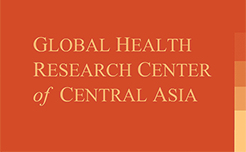BY ANA SINGH
In November 2012, Aira Toivgoo, our GHRCCA Mongolia Director from the Wellspring, NGO, presented a recent, innovative study at a conference on strategies and innovations for asset building in Beijing. The conference, entitled “Lifelong Asset Building: Innovations and Strategies in Asia” was hosted by the Center for Social Development at Washington University in St. Louis partnered with Peking University and Hong Kong Polytechnic University (click here for more information on the conference). Asset building policy is a trend that is rapidly increasing throughout Asia in response to rising inequality and aging populations. “
This was an important conference because it brought together a network of scholars, policy makers, practitioners, corporate leaders, funders from different countries who shared their experiences, lessons learnt, challenges, and innovative approaches of their ways to make people’s lives to make better,” shared Toivgoo when asked about the significance of the event. Conference attendees, from all parts of Asia, learned about policies and initiatives in China, Sri Lanka, Malaysia, Vietnam, Taiwan and Indonesia, as well as research studies and programs in Thailand, Nepal, China and Mongolia. The conference gained extensive media coverage in China, including articles in high-profile news outlets such as China Youth Daily, Sina News, China Daily, ifeng.com and NetEase (163.com).
The media coverage has helped spread news of this topic to wider audiences, expanding the conversation about asset-building innovations. LIU Zheng, general director of the Department of Social Work in the Ministry of Civil Affairs, articulated the significance of this conference for the people of China, saying, “Asset building policies and programs will bring great benefits to our citizens, and this gathering will only help in moving our work forward.” Microfinance programs play a critical role in asset building and may be delivered in many ways.
The Undarga Project, funded to Wellspring NGO and to investigators at the Columbia Social Intervention Group and the Global Health Center of Central Asia, is currently testing the efficacy of a microfinance intervention combined with HIV prevention to reduce sexual risk behaviors among female sex workers (FSWs) in Mongolia. Undarga uses a combination of teaching financial literacy and business development skills, and also includes a savings-led component to match personal savings 2 to 1.
This conference allowed Toivgoo to report on preliminary findings and to collaborate with other individuals who use both similar and other microfinance methods in their work. “As I listened to others, and to share our research and program efforts in microfinance, I was surprised what similarities in problems we all have and I was more amazed what different and at the same time innovative and unique approaches we all use to solve these problems.” Toivgoo concludes “No doubts with such richness we will do better moving to the future.”



Connect with us